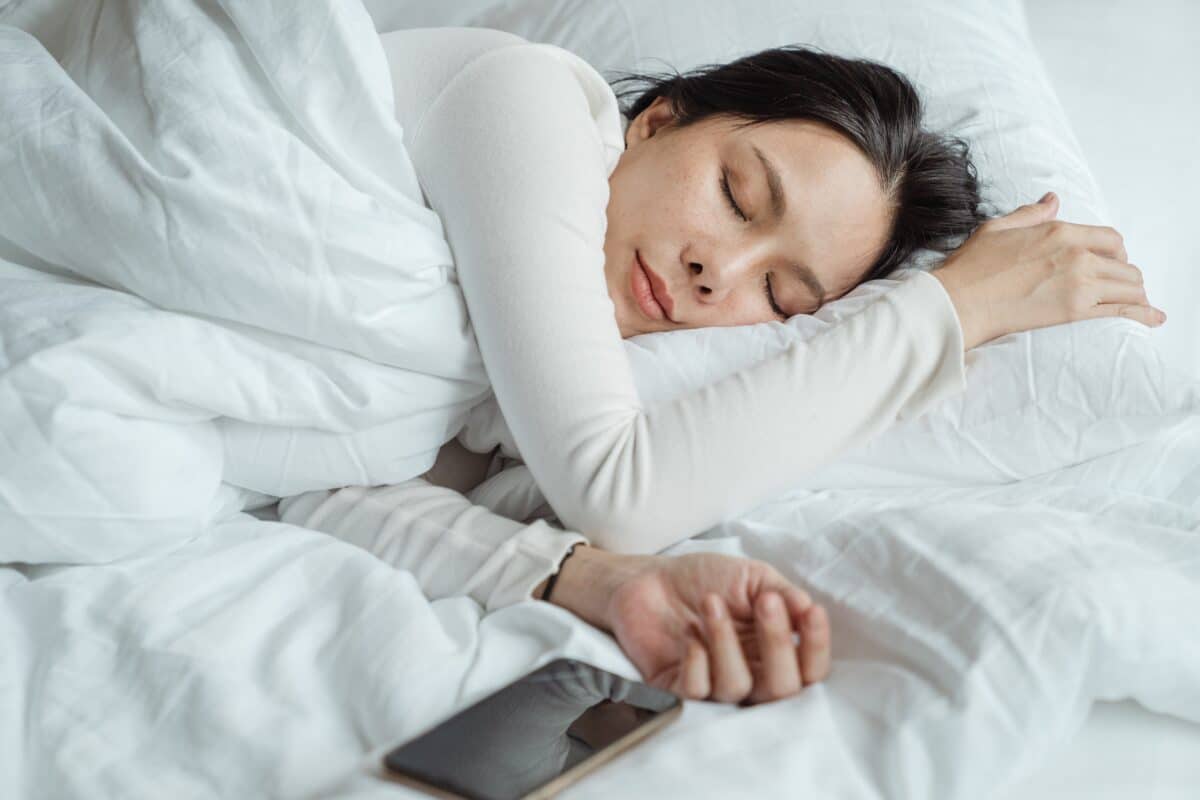Form Better Sleep Habits to Combat Depression

6 Tips to Form Better Sleep Habits and Combat Depression
Sadness is not uncommon, it’s part of the overall human experience. For most people, feeling sad is a perfectly normal emotional response caused by any number of factors. For others, sadness, and other emotions that accompany it such as hopelessness or despair, are more consistent in their day-to-day lives. Persistent feelings such as these are often labelled as the condition known as Depression.
Depression (also known as Major Depressive Disorder) is a serious medical condition that negatively affects every aspect of a person’s life including how they feel, the way they think and how they act or behave. According to the American Psychiatric Association, depression affects an estimated one in 15 adults (6.7%) in any given year, and one in six people (16.6%) will experience depression at some point in their life.
While the symptoms, and therefore treatments, for depression vary depending on the person, there is always a connection between a person’s poor sleep habits and the resulting depressive episode.
The National Sleep Foundation writes, “The relationship between sleep and depressive illness is complex – depression may cause sleep problems and sleep problems may cause or contribute to depressive disorders.”
Some people with depression find that they can’t stop sleeping, while others find they can’t sleep at all. No matter which of these scenarios a person is struggling with, forming better sleep habits helps to combat depression and ease the regular symptoms someone with this condition normally experiences.
Poor Sleep Habits Affect Depression – the Circadian Rhythm
Sleep habits are regulated by an internal process known as the circadian rhythm, a natural 24-hour cycle that is part of the body’s internal clock. Formed from a daily pattern of psychological processes, this rhythm runs constantly to carry out essential bodily functions and helps to maintain normal sleep/wake cycles.
A recent study from Harvard Medical School states, “…circadian rhythm disturbances are common in people with depression, who often have changes in the pattern of their sleep, their hormone rhythms, and body temperature rhythms. Symptoms of depression may also have a circadian rhythm, as some people experience more severe symptoms in the morning. The severity of a person’s depression correlates with the degree of misalignment of the circadian and sleep cycles.”
That said, it’s important to form quality sleep habits as soon as possible in order to maintain a healthy circadian rhythm. Whether you’re suffering from depression or you just consider yourself “a night owl,” poor sleep habits cause long-lasting and detrimental effects to both your physical and mental health.
6 Lifelong Sleep Habits to Make and Keep!
Here are 6 tips to help form better sleep habits and to ensure a good night’s rest:
1) Exercise regularly & often
Exercising regularly releases endorphins that help with any type of stress-related condition, including depression. Endorphins are known as “the body’s natural antidepressant” and can significantly improve your mood. Exercising a few hours before bed also helps to tire your muscles so it’s physically easier to relax once you lay down for the night.
2) Go outside every day to soak up Vitamin D
This one is tricky, particularly for those who work from home or who live in regions where the Sun doesn’t come out from behind the clouds “often enough.” However, Vitamin D is an excellent supplement for sunshine and is also a natural mood enhancer. Sunlight frequently helps to recalibrate circadian rhythms that have gotten off track and there is research to suggest that vitamin D does the same. Our sister spa-clinic, IV Restoration , offers Vitamin D injections to deliver liquid sunshine for those looking to boost their mood during the dark days of Northeast Ohio winters.
3) Form a relaxing bedtime routine
Moving away from electronic screens and any potentially stressful tasks at least an hour before bedtime is a good way to unwind for the night. The blue light that cell phone and computer screens emanate both overstimulates the mind and actually suppresses the production of melatonin that helps moderate the circadian rhythm. Most sleep experts recommend reading a book or drinking a cup of decaffeinated tea before bed in order to increase melatonin production and to promote a restful, stress-free night.
4) Keep a regular sleep schedule
Keeping a regular sleep schedule is easier said than done when living with depression, but going to bed at the same time every night and therefore, waking up at the same time each morning, can be extremely beneficial. Research done in the last 5 years has found that keeping a consistent bedtime is just as important as the length of time a person sleeps—and that includes during the weekends too!
5) Stop drinking alcohol before bed
A common misconception many individuals have is that alcohol actually helps you to sleep better at night. While a glass of wine or a few beers may make you drowsy initially, alcohol actually reduces sleep quality by disrupting sleep patterns and blocking your REM (deep) sleep, so you ultimately wake feeling less refreshed. Waking up tired is never a great feeling and can lead to a decrease in mood, productivity and activity throughout the day.
6) Prioritize making your bedroom a sanctuary
This one is really important, but many adults especially fail to take it seriously. A plethora of noise, light or other distractions can make falling sleep (and remaining asleep) incredibly difficult. Black-out blinds/curtains, ear plugs, sleep masks, and listening to calming music/white noise are all excellent ways to ensure that you don’t get woken-up by an external source. Even something that may seem insignificant, like an old mattress, can have a negative effect on getting a good night’s sleep. Going to bed with a messy room has also been shown to cause stress and to affect how people sleep at night, so make sure your bedroom is tidy and peaceful. Avoiding the use of electronics in your bedroom is also highly recommended for numerous reasons.
Respecting your sleep cycle is absolutely essential, and should be a valued practice akin to regular maintenance for your automobile or following a diet for weight-loss or fitness goals. Our bodies have amazing regenerative and balancing capabilities, IF we treat them with care and awareness.
If you or a loved one are experiencing Treatment Resistant Depression (TRD), visit New Pathways Clinic in Cleveland for the latest in ketamine infusions.


